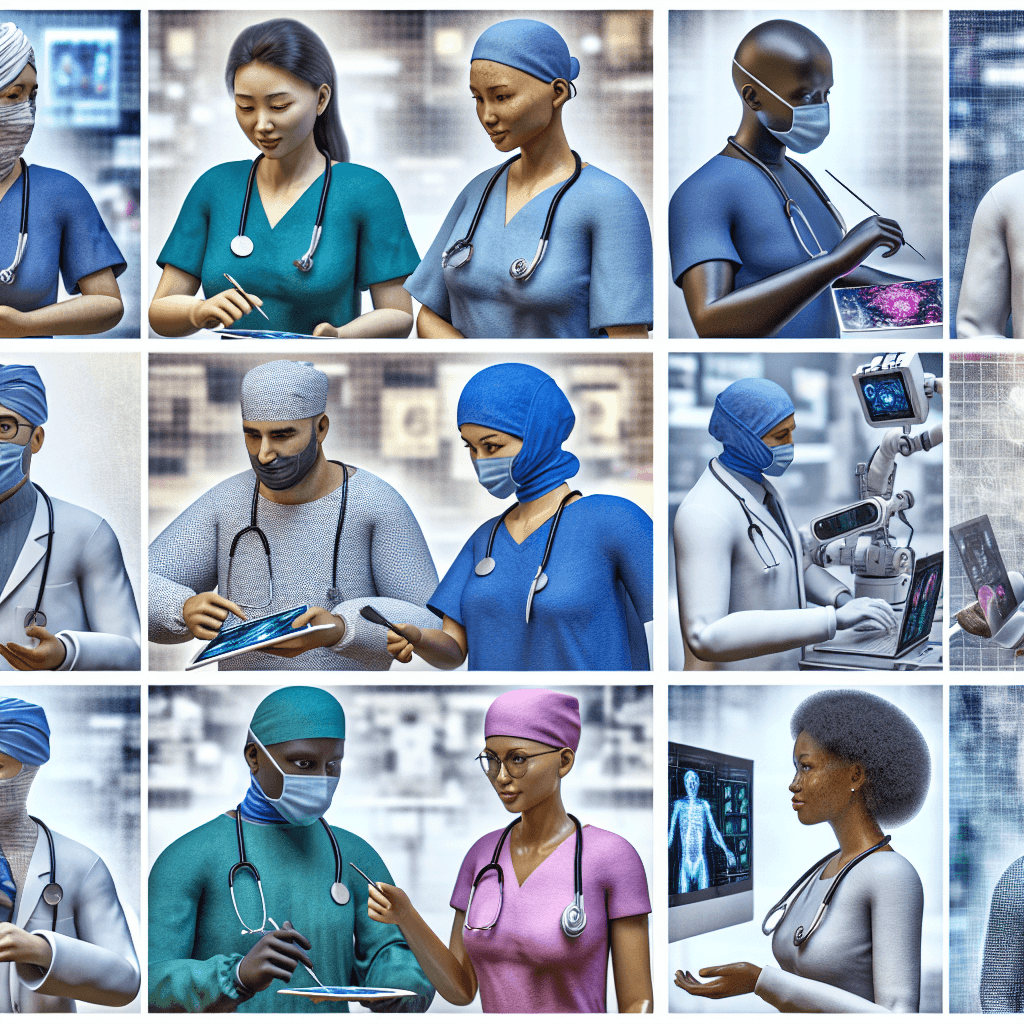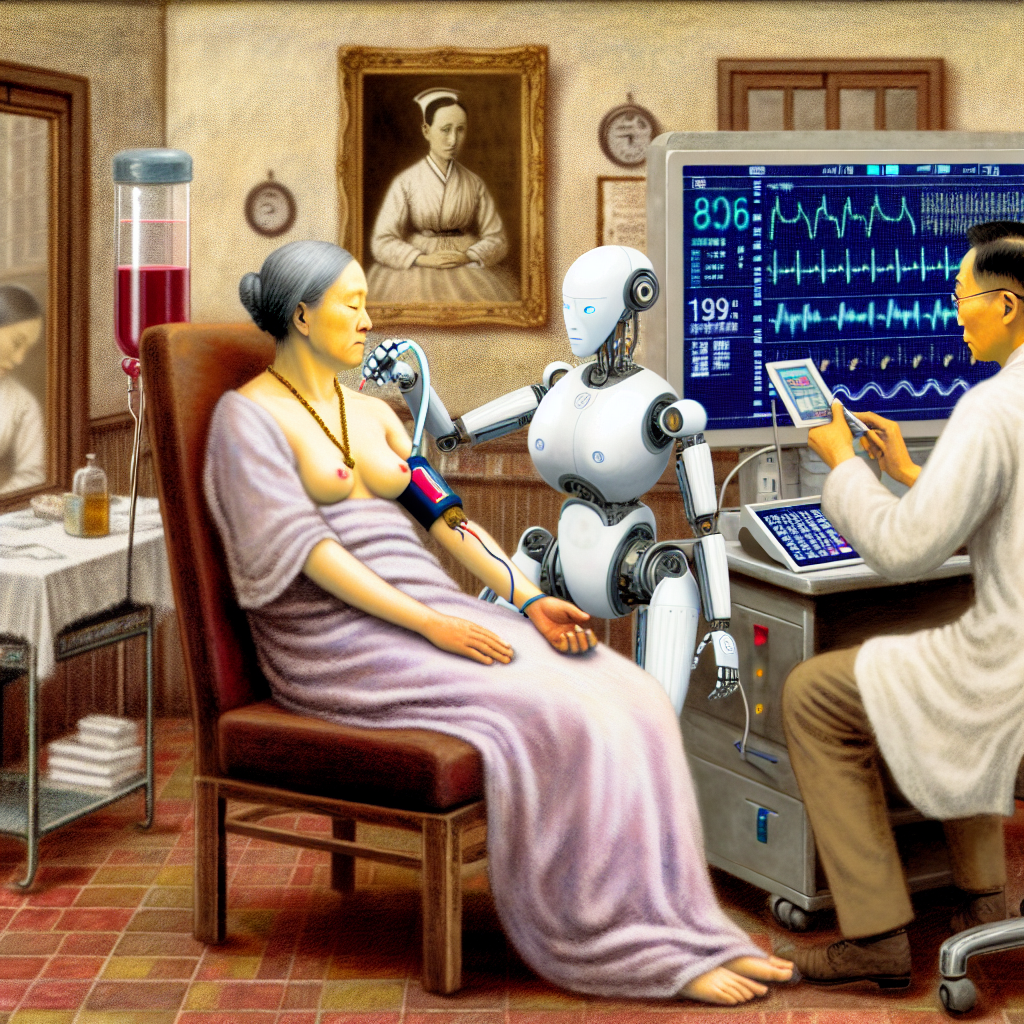Explore how AI is revolutionizing healthcare with improved diagnostics, personalized treatment, and enhanced patient care efficiency.
Artificial Intelligence in Healthcare

Table of Contents
- Artificial Intelligence in Healthcare
- The Role of AI in Modern Healthcare
- Diagnostic Assistance
- Treatment Personalization
- Operational Efficiency
- Benefits of AI in Healthcare
- Challenges and Ethical Considerations
- Data Privacy and Security
- Regulatory Compliance
- Biases in AI Algorithms
- Case Studies: AI Success Stories in Healthcare
- IBM Watson Health
- Google DeepMind Health
- The Future of AI in Healthcare
- Conclusion
Artificial Intelligence in Healthcare

The integration of artificial intelligence (AI) in healthcare is revolutionizing the medical field, offering unprecedented opportunities to enhance patient care, streamline operations, and reduce costs. This article explores the various applications of AI in healthcare, its benefits, challenges, and the future prospects of this transformative technology.
The Role of AI in Modern Healthcare
AI technologies are being employed across various facets of healthcare, from diagnostic processes to treatment protocol development, and from patient monitoring to management of medical records.
Diagnostic Assistance
AI systems are increasingly used to assist in diagnosing diseases, particularly those that require complex analysis of imaging data. For example, AI algorithms can analyze X-rays, MRI scans, and other images faster and often more accurately than human radiologists. Diseases like cancer, neurological disorders, and heart diseases are being diagnosed with the aid of AI, enabling early and more effective treatment.
Treatment Personalization
AI is instrumental in the development of personalized medicine. It can analyze data from patient records to predict the health risks and response to various treatments. This capability allows healthcare providers to tailor treatments to individual patients, improving outcomes and minimizing side effects.
Operational Efficiency
AI applications in healthcare also extend to administrative domains. AI can automate routine tasks such as scheduling, billing, and compliance monitoring, thereby freeing up medical staff to focus more on patient care. This not only improves operational efficiencies but also reduces the scope for human error.
Benefits of AI in Healthcare
The adoption of AI in healthcare brings numerous benefits:
- Improved Diagnostic Accuracy: AI algorithms can detect nuances in medical images that may be overlooked by human eyes, leading to earlier and more accurate diagnoses.
- Enhanced Treatment Efficacy: By analyzing vast amounts of medical data, AI can identify potential treatment combinations that are most likely to be effective for specific patients.
- Cost Reduction: AI can streamline various administrative and clinical processes, potentially saving healthcare systems billions of dollars annually through improved efficiency and error reduction.
- Increased Accessibility: AI-powered telemedicine and mobile health applications can deliver expert medical advice to remote or underserved areas, improving access to healthcare services worldwide.
Challenges and Ethical Considerations
Despite its benefits, the integration of AI in healthcare is not without challenges.
Data Privacy and Security
Handling sensitive patient data raises significant privacy concerns. Ensuring the security of health data and maintaining patient confidentiality are paramount as healthcare providers adopt more AI tools.
Regulatory Compliance
AI applications must comply with stringent regulatory standards that govern healthcare. Navigating these regulations, which can vary significantly by region, poses a substantial challenge.
Biases in AI Algorithms
If AI systems are trained on limited or biased data sets, they can perpetuate these biases. For instance, an AI trained primarily on data from one ethnic group may not perform well for other ethnicities. Ensuring the diversity of training data is crucial to develop unbiased AI systems.
Case Studies: AI Success Stories in Healthcare
Several case studies highlight the successful application of AI in healthcare:
IBM Watson Health
IBM Watson Health is a prominent example of AI in healthcare. It uses natural language processing and machine learning to process vast amounts of medical literature. It assists doctors in diagnosing and treating patients by providing up-to-date medical information from various sources.
Google DeepMind Health
Google DeepMind has made significant strides in applying AI to healthcare. Its AI system can analyze eye scans for signs of diabetic retinopathy, a condition that can lead to blindness if untreated. This system helps doctors diagnose the condition early and accurately.
The Future of AI in Healthcare
The future of AI in healthcare looks promising, with ongoing advancements likely to further transform the landscape. Innovations such as AI-driven genomics, robotic surgery, and more sophisticated wearable technology are on the horizon. These developments will continue to enhance the efficiency and effectiveness of healthcare services, making personalized medicine more accessible to all.
Conclusion
AI is set to transform healthcare with its ability to streamline operations, enhance diagnostic accuracy, and personalize treatment options. While challenges such as data privacy, regulatory compliance, and potential biases exist, the benefits far outweigh these obstacles. With careful implementation and ongoing innovation, AI will continue to play a crucial role in shaping the future of healthcare.
In conclusion, as AI technology advances, it promises to bring about more profound changes in healthcare, making services more effective, efficient, and accessible. The integration of AI in healthcare is not just a technological upgrade but a necessary evolution to meet the growing healthcare demands of the 21st century.








